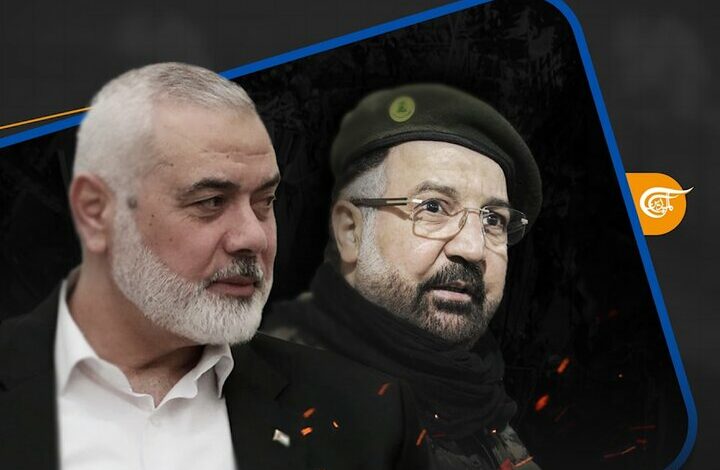Possible scenarios after the recent assassinations of the Zionist regime

reported by %20%0A
The act of the Zionist regime to assassinate Ismail Haniyeh, the head of the political office of Hamas, and Fouad Shekar, the Jihadist commander of Hezbollah, at intervals close to the hacking, raised many doubts about the timing and goals of the Zionist regime. It creates terror.
With these assassinations, the Zionist regime is looking for an image for its and Netanyahu’s victory, because in the last ten months it has not been able to achieve a strategic victory in the battlefield and In addition to the war in Gaza, the scope of the war has also extended to the northern regions.
This article emphasized that the assassination of Haniyeh in Tehran is probably in the framework of an American, Zionist and British plan to bring Iran into war in some way so that it can gain its power. analyze and create a new development in the region.
Al-Mayadeen adds that the Zionist regime on the northern front tried to exploit the Majdal Shams missile incident and justify it as a blow to Hezbollah. He also used Fouad Shekar’s assassination incident as a way to restore the face of his deterrence since the 2006 war and tried to regain his lost deterrence in Gaza and after the Al-Aqsa storm.
According to this report, these two incidents can expand the scope of the war and lead the region to an all-out war, especially in the current inflamed situation. All available information shows that the region is in a state of inflammation due to the harsh and unprecedented policies of the extreme right in the occupied territories, and on the other hand, Iran and Hezbollah have shown their readiness to respond to these attacks.
Experience has shown that Tel Aviv has been assassinating military and political figures in the Palestinian and Lebanese resistance axis since years ago when it loses its deterrent power. .
The Zionist regime has adopted brutal behavior under the pretext of defending its existence and survival, and this shows that Tel Aviv cannot win based on the concept to gain his classics or to occupy a land in a permanent way, so he assassinates political or military figures in order to gain achievements for himself in order to have something to offer to the Zionist society.
From a historical point of view, the trend of these assassinations has been increasing for thirty years, and during these years it has turned from a marginal policy to a central policy. . With this policy, Tel Aviv wants to restore trust and confidence in the Zionist society and pretend that although Tel Aviv failed in the Al-Aqsa storm operation, it has the power to target the leaders of the Palestinian and Lebanese resistance.
possible scenarios
After the assassination of Ismail Haniyeh and Fawad Shekar, there are two scenarios;
The first scenario is that Netanyahu wants to show the public opinion through the strategy of assassination that he is determined to achieve his goals and these assassinations are an image of a victory.
The second scenario is that Netanyahu and his partners see this action as a good opportunity to restore their lost deterrence and intend to continue with this policy.
dir=”RTL” style=”text-align:justify”>
The question that arises here is whether these assassinations are enough to convince the public opinion of the Zionist regime as a victory?
Based on the first scenario, the public opinion of the Zionist community is divided into two parts in response to these assassinations. Tel Aviv changes on the 7th of October. Some behaviors inside the occupied territories after the recent terrors create this perception.
But another part of the Zionist society, their security and military institutions understand the reality from two aspects of intelligence and strategy and believe that although the assassinations are vindictive and effective, But it has no effect on the resistance measures and the future of the region.
They believe that these assassinations do not have a long-term strategic effect on the resistance force and their war against the Zionist regime, rather this issue is considered a tactical deterrent and only for Presenting a vengeful face in the public opinion of the Zionist society is useful.
Historically, the Zionist regime has assassinated various Palestinian and even Lebanese personalities over the past 50 years, but experience has shown that this policy has failed and has no effect because The resistance of Palestine and Lebanon quickly produces and replaces new commanders.
The second scenario is that Tel Aviv wanted to send a message to the region after these two assassinations, that it is ready for a massive conflict in any possible scenario.
By carrying out these assassinations, the Zionist regime showed its claws and teeth to the resistance and Netanyahu dragged the region to the edge of the abyss and put it in front of a massive conflict, but Apparently, he forgot that he suffered a heavy failure in realizing his achievements and was unable to release his prisoners after 300 days of war, and he also failed in the northern front with Lebanon and also faced failure in confronting the Yemeni drones.
As a result, the region is facing a new chapter of developments that will either lead to a widespread conflict or to a final and inclusive agreement. But in any case, these two assassinations showed that there is no future for the Zionist regime’s decapitation and that the occupation is declining despite all the crimes they commit against the Palestinians.


